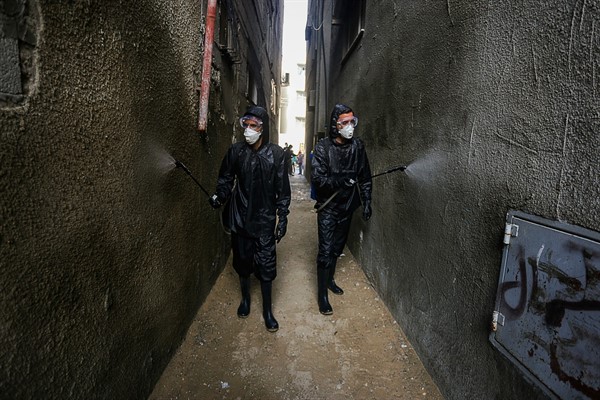RAMALLAH, West Bank—The coronavirus came quietly to Gaza on March 21. Two residents who had returned from Pakistan via the Rafah border crossing with Egypt were diagnosed with COVID-19, sending waves of shock and fear across the Palestinian territories.
The outbreak started out small in the West Bank, as well. Seven Palestinians who had interacted with a group of tourists visiting Bethlehem on March 5 were confirmed to have the novel coronavirus. Authorities quickly scrambled to implement a containment strategy for Jesus’ biblical birthplace, and imposed a lockdown on the entirety of the West Bank on March 22. Movement between cities, villages and refugee camps was banned except in medical emergencies. As of April 10, there were 263 Palestinians infected with the virus, 40 of whom are children, according to a Palestinian government spokesperson.
Neighboring Israel, which has its own lockdown in place to deal with the virus, has provided the Ramallah-based Palestinian Authority with test kits and access to labs for much-needed testing. Although Israelis and Palestinians have not held direct peace talks since the Obama administration, the threat of a pandemic has forced them to set some of their differences aside for now. But beyond that, not much has changed on the ground.

